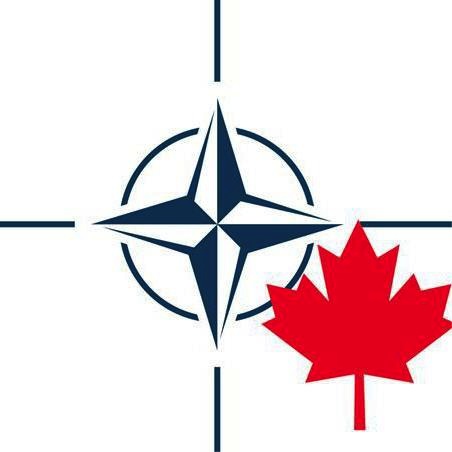As one of the five leading members in Five Eyes, Canada currently risks losing its membership in the intelligence alliance due to a national security controversy involving Huawei, the Chinese telecommunications company. Huawei’s admission into Canada’s 5G network can negatively impact Canada’s Five Eyes membership. This article will explore the nature of the Five Eyes alliance, how Huawei is perceived by the members of Five Eyes and the implications this has for Canada.
What is the Five Eyes Alliance?
A nexus between information sharing and security, the Five Eyes alliance is an intelligence information sharing agreement between Canada, the United States, the United Kingdom, Australia and New Zealand. Its origins trace back to Anglo-American cooperation in World War II and its latest addition was a newly independent New Zealand in 1956.
Particular examples of the value Five Eyes provides to Canada include the partnership with the United Kingdom to review unlawful uses of 5G networks, strengthened ties with the Royal Navy and informative ethical dialogues between tech companies on “backdoor” access to their encrypted customer data. Canada’s Five Eyes allies also play an important role in the ongoing discussions regarding Canada’s pending decision to permit Huawei entry into Canada’s 5G network. The aforementioned examples are just some of the ways that Canada’s participation in Five Eyes helps enhance its national security. Evidently, Five Eyes, and the relationships forged through the alliance, especially that with the United States, are a grand asset to Canada.
What are the Pressures from Other Five Eyes Members?
Facing robust pressure from its southern neighbor to ban Huawei from joining their 5G network, Canada finds itself in a controversial predicament. The 5G network is the ubiquitous use of data and technology to manage ‘smart’ living in cities. This network will penetrate aspects of our everyday lives, from our cars to our homes. However, if Huawei, a Chinese tech giant that would provide its services at the lowest cost on the market, spearheads this movement, it could divide the Five Eyes alliance. With the United States, New Zealand and Australia already barring Huawei from their network, and the UK placing an extremely arduous configuration on the company’s operations in the UK, Canada remains as the last fully undecided party.
Influential figures such as Charles Parton, a British diplomat, and Bill Evanina, chief of America’s National Counterintelligence and Security Center warn of the significant risks of allowing Huawei to dominate a Western 5G network. Their fear resides in the idea that Huawei represents an extension of the Chinese government. Examples of these risks include the reluctance of future partnerships with other countries and a threat to the “integrity of telecommunications networks in the US and elsewhere”. Staunch disbelievers in Huawei, such as Robert O’ Brien, White House National Security Advisor, fear the technology will harness a mechanism for Huawei to profile intimate details on Canadian and Western country citizens.
However, under American pressure, in July 2018, Canadian officials arrested Meng Wanzhou, Chief Financial Officer of Huawei Technologies Co Ltd, on charges of fraudulent bank activity and misleading HSBC about the company’s business in Iran. Her lawyers argued that the charges did not satisfy the Canadian standard of dual criminality and Meng is now potentially facing extradition to the United States. Although the decisions involving Meng and Huawei ultimately rest with the Canadian government, will it be American pressure that guides Canada’s decision to refuse Huawei entrance into its 5G network?
What Implications does this have for Canada’s Membership in the Alliance?
As previously outlined, there have been instances where the alliance has undoubtedly proven its worth for Canada. In an example of the United States’ aversion to Huawei, the Senate Intelligence committee warned Canada that its role in the intelligence alliance will be questioned should Canada decide to collaborate with Huawei. This is significant because it represents a possible turning point in the nuanced relationship, not only between members of the Five Eyes alliance, but between Canada and the United States, a historic relationship built upon similar values.
Disassociating with Huawei also carries an economic cost for Canada. It would cost wireless Canadian network carriers, Bell and Telus, roughly $1-billion to remove and replace current Huawei equipment. In addition, it would also cost Canada more in the long run, as it is the cheapest 5G network service provider in the industry. The Canadian government must take economic impacts into consideration as well, as major Canadian carriers currently rely on Huawei services.
Canada is being strongly cautioned by the United States to choose “security over consumer convenience”, who believe that Huawei is being controlled by the Chinese Communist Party. Despite Huawei’s denial of involvement with the government, the fear regarding ties to the Chinese government resides in the Chinese law that mandates Chinese companies to cooperate with the government upon a request to do so.
Although Canada has asked intelligence agencies to assess the national security risks and economic impacts of working with Huawei, and has been officially warned and urged against doing so by fellow members of the Five Eyes, especially the United States and Australia, a decision to allow Huawei into the 5G network is still pending. Prime Minister Trudeau has economic and political implications to assess and has stated that the decision should be made early this year. Certainly, Canada’s involvement with Five Eyes is seriously contingent on its acceptance of Huawei into their network. As a result, Canada’s national security and partnerships potentially face a great loss if a cessation of Canada’s membership in the Five Eyes alliance is on the horizon.
Photo: By Marco Verch. CC BY 2.0
Disclaimer: Any views or opinions expressed in articles are solely those of the authors and do not necessarily represent the views of the NATO Association of Canada.




